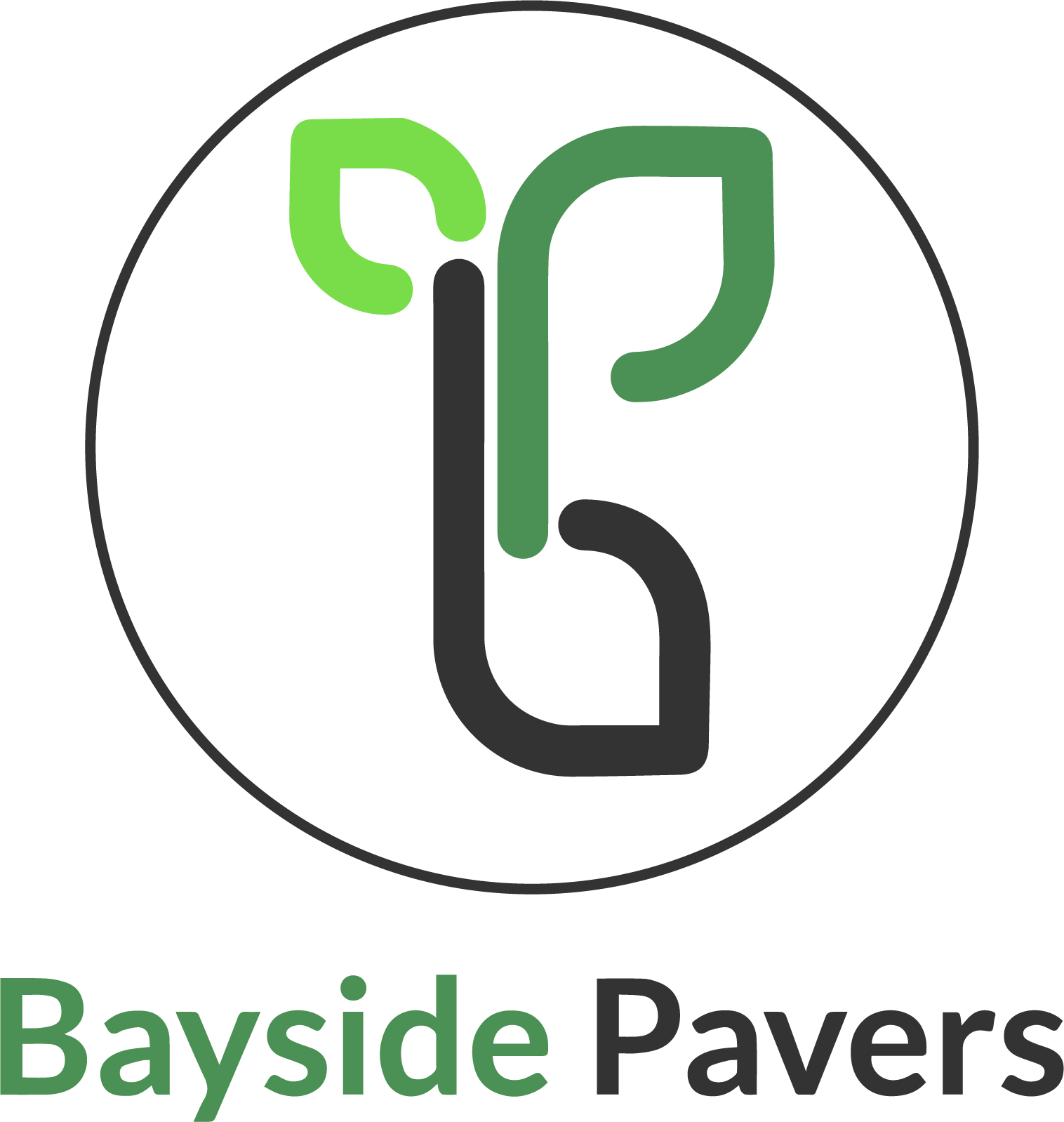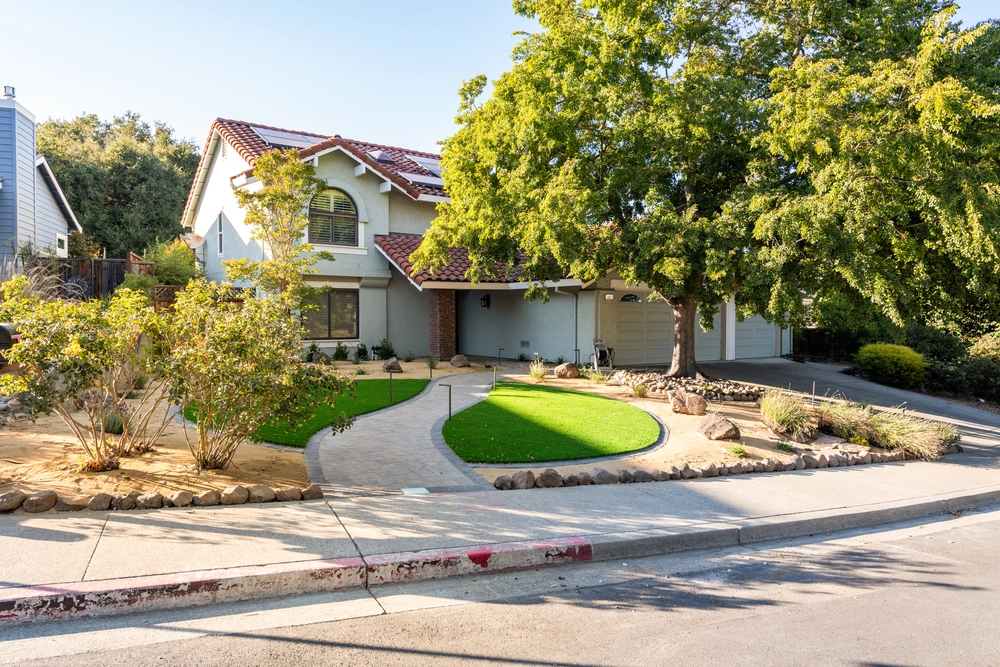IMPROVING GROUNDWATER WITH FRIENDLY PERMEABLE INTERLOCKING CONCRETE PAVERS
Using permeable interlocking concrete pavers for walkways and roadways can add the beauty of your subdivision project. Permeable pavers eliminate the need for traditional storm drains and improve the quality of groundwater. At Bayside Pavers, we work closely with residential developers to design and gain permitting for permeable interlocking concrete paver systems to best match the geological conditions of California’s Bay area and meet all local regulatory requirements.
Permeable pavers are an environmentally friendly material that can help to control erosion, improve stormwater drain-off and add considerably to your project, both aesthetically, and with increased value.
Click Here To Speak With an Expert On Permeable Pavers
Let’s look at some of the environmental benefits of using permeable concrete pavers for your next residential subdivision project.
CONCRETE PAVERS MITIGATE EROSION
If not adequately managed, stormwater can cause erosion along existing drainage pathways. Run-off can flood low lying areas, and contaminate wetlands, estuaries, lakes, rivers, and streams. Surface water drinking supplies can also be impacted. Permeable pavers can minimize or eliminate this problem. Studies have shown that a more controlled outflow of stormwater run-off reduces the risk of flooding and erosion. Interlocking permeable pavers allow water to drain through the pavers in a more controlled way virtually eliminating erosion downstream.
PERMEABLE CONCRETE PAVERS PROMOTE STORM WATER FILTRATION
According to the US Geological Survey, half of all the drinking water in America is supplied by groundwater reserves, while the remainder comes from lakes and rivers. Urban and suburban environments full of impervious surfaces like buildings, sidewalks, parking lots, roads, and driveways prevent rain from percolating back into groundwater supplies. As a result, groundwater supplies are not being recharged, and shallow flow systems which maintain the base flow conditions between rain events in lakes and rivers are impacted as flow rates are reduced.
Properly installed permeable interlocking concrete pavers (PICPs) act as large-scale reservoirs with a drivable surface. The open graded base and sub-base aggregates have 32% and 40% open space that provides temporary water storage. With full infiltration systems used on soils with high infiltration rates like sand and loam rain that falls drains almost as quickly as it is introduced. Excess water accumulates in the sub-base before being returned to groundwater supplies.
CONTROLLING RUN-OFF
When properly designed, installed and maintained, PICP systems have higher infiltration rates than natural soil and can naturally drain several times the maximum possible rainfall intensity. A PICP surface should be given a 100% perviousness credit, equal to a meadow or forest.PICPs can also delay or hold water in the aggregate and sub-base until the subgrade soils percolate the water, or until an underdrain system releases the water at a controlled rate.
WATER POLLUTION
The US EPA recognizes PICPs for improving stormwater quality. Through absorption, volatilization, microbial and filtration PICPs work to reduce contaminants before water is returned into groundwater aquifers. Filtration is effective at removing large particulates and suspended solids, potentially some metals, total phosphorus, and hydrocarbons in relation to the degree each binds to filtered particulates. Within the graded base and sub-base, volatilization and microbial action in addition to absorption also work to remove some pollutants.
PERMEABLE INTERLOCKING CONCRETE PAVERS OFFER GREATER VALUE AT A LOWER COST
In conventional drainage designs, retention ponds can consume a significant portion of the development site reducing the income generating footprint of the site.
PICPs combine the roadways and parking with the retention footprint effectively allowing land that would typically be devoted to a retention system to be transformed into continuous use green space, recreational areas or additional development sites. In fact, we can show you examples where permeable interlocking concrete pavers have allowed for the preservation of wooded areas that would have otherwise been cleared or impacted by construction of a stormwater retention system.
Several of our clients added additional building lots with the increased revenue more than exceeding the capital costs of installing a permeable interlocking concrete paver system. In high-density developments, additional parking was added allowing developers to add more units to the building.
PICPs are environmentally friendly, durable, cost-effective and offer an aesthetically beautiful focal point to any property or development. If you’re a developer looking for a cost-effective solution that can add value to your property’s infrastructure give the experts at Bayside Pavers a call at 1-(866) 287-2837. We can work with you to design and gain permitting for a PICP system for your next development project.
If you’re in the San Francisco Bay area, our location in Concord, CA at 2455 Bates Ave, Ste K, services East Bay and South Bay homeowners. Our Santa Rosa, CA location at 1619 4th Street Ste 12 can help you with your North Bay hardscaping projects.

